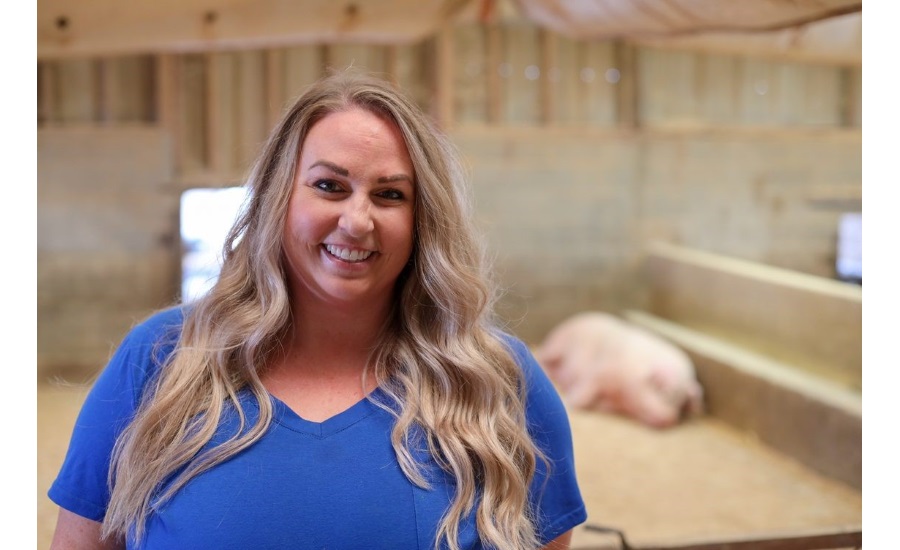As Californians face what could become limited availability of pork products like bacon, producers are launching a new effort focused on educating farmers, consumers, restaurants, and grocers about pork raised in the U.S. and sold in California.
The effort is being led by Jill Damskey, who has been selected as the first ever Pork Ambassador to California as an employee of the California Pork Producers Association headquartered in Sacramento.
“California is an important market for U.S.-raised pork,” says Damskey. “We consume more pork than any other state in the nation. California pork lovers include a wide diversity of people and cultures who care about how their food is produced.”
“I’m passionate about educating people on the importance and value of agriculture,” she says. “I grew up in rural California surrounded by farmers of all kinds. My family raised pigs and I was actively involved in organizations like 4-H and FFA. I’m honored to represent pork farmers and people who love pigs and pork like I do.”
Damskey’s task is expected to be challenging as new laws approved by California voters in 2018 go into effect beginning in January of 2022. Proposition 12, also known as Prevention of Cruelty to Farm Animals, requires pork producers to enlarge some of their housing for pigs. The California mandates apply to pigs raised both within and outside the state. Complicating matters is the fact that final regulations are not yet approved and U.S. pork producers have been reluctant to make changes until they know exactly what is required.
Damskey notes that California does produce some of its own pork, but the vast majority comes from producers outside of the state. Under Proposition 12, in January, pork products including all roasts, ribs, chops and bacon sold in the California must be compliant with new provisions of the law.
A recent economic analysis by Rabobank, estimates 4 percent of U.S. pork producers are currently able to meet expected new requirements and very few more will be able to do so by January. This could potentially mean limited availability of pork products for Californians which could lead to dramatic impacts on prices paid by consumers.
“This is a complicated situation but if we work together, we can come up with solutions. That’s my primary task at the moment,” says Damskey, who explains she is working with officials at the California Department of Food and Agriculture (CDFA) to finalize the Proposition 12 regulations.
“I’m meeting with CDFA officials regularly to help them better understand how the industry operates. I’ll also be engaging with retailers, restaurants and industry groups to learn more about needs throughout the supply chain,” says Damskey. “One of the first issues at hand is to create a system to verify that pork sold in California is Proposition 12-compliant. This will be a challenging and costly aspect of the new law and will impact everyone from farmers to processors, retailers, restaurants and even for universities that raise and sell pigs.”
Damskey notes that U.S. pork producers are committed to humanely raising pigs and are implementing a set of ethical principles for animal care, worker and public safety, the environment and health. More information about the U.S. pork industry’s WeCare initiative can be found at porkcares.org.
“U.S. pork producers want Californians to understand how the pork they buy is complying with the new law and the care that goes into raising pigs,” says Damskey. “I am so honored to be working with this tremendous group of people who feed the world.”
Source: California Pork Producers Association



Report Abusive Comment